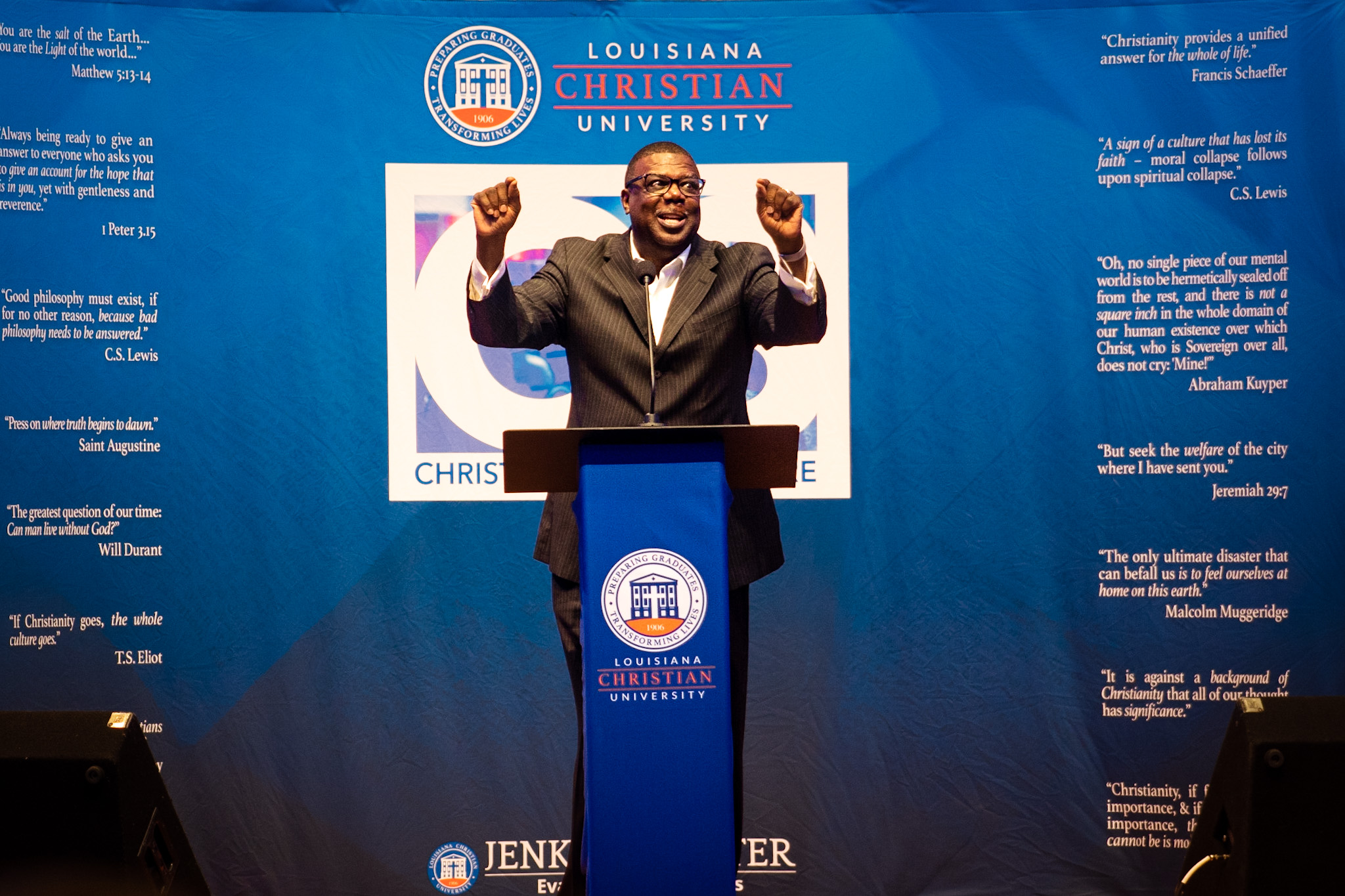By LCU News
PINEVILLE, La. (LCU News) – Robert Freeman challenged students during the Louisiana Christian University’s Christ, Church, Culture (C3) event, Feb. 27, to be the generation to bring about racial reconciliation by having authentic conversations with each other.
Freeman, a nationally recognized speaker and facilitator on the issue, shared how a cultural and racial divide in the United States shaped his identity as a young man who grew up on the Mason-Dixon line, which is known as the boundary between the Southern slave states and Northern free states.
“God surrounded me with people who were different from me to have conversations with,” said Freeman, founder of Robert Freeman Ministries. “Out the back door, it was the North, and out the front door was the South. I grew up on this Mason-Dixon line, and God has used me as an instrument of peace and reconciliation.”
Freeman shared how he lost his mother as a teenager, and a family, she had worked for, filled the gap and treated him as their own. Alice and Edward Taylor (a white family) told him they felt led by the Lord to take care of him and at 16 he became a Christ follower. The Taylors, along with his high school cross country coach, later paid for him to attend Delaware State University.
Freeman — who also earned a master’s degree and a Doctor of Divinity degree — stressed that conversations are needed for true racial harmony to take place in America. He shared about how a friendship with a Klansman led to his conversion from atheism to Christianity and the disbandment of the Ku Klux Klan chapter in that community in Illinois.
“What we are doing is not working, and it’s clearly not working in the body of Christ,” Freeman said. “We have extrapolated the law as being the rule for morality, and it‘s not.
“The church spends lots of time arguing over little things, while the main thing is lost because we don’t have authentic relationships,” he continued. “We have surface talk.”
LCU President Rick Brewer said the university is ready to have those conversations.
“Without conversations and communication, we can’t learn from one another,” he said. “When we acknowledge one another’s history, we can become a stronger community focused together on the source of all truth—Jesus Christ.”




